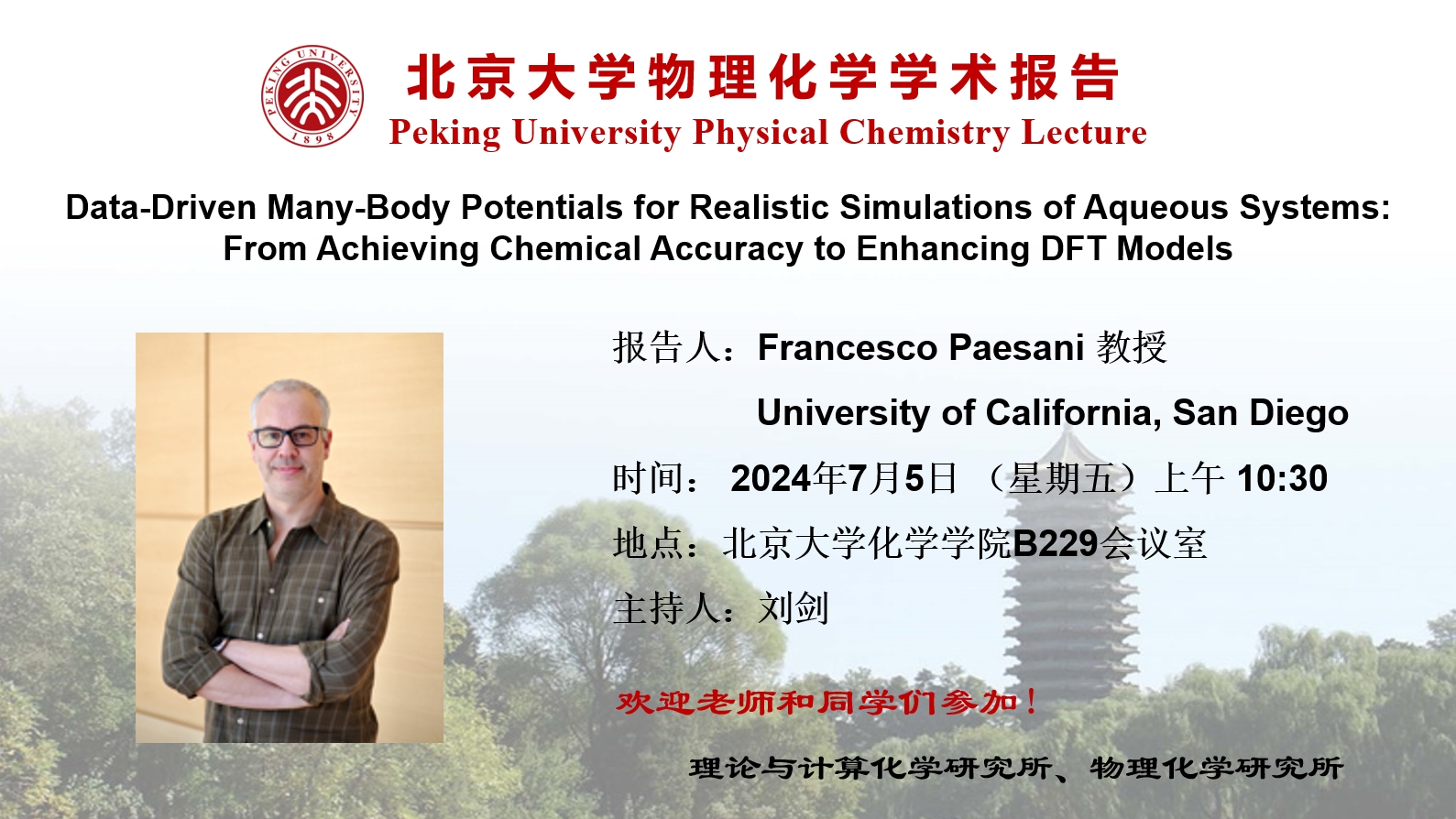
Abstract
Molecular simulations are instrumental in gaining detailed insights into the properties of complex systems, from biomolecules to materials. At the heart of these simulations is the potential energy function (PEF), which maps out the multi-dimensional energy landscape of the system in question. The accuracy of the PEF is crucial, as it dictates the realism and, consequently, the predictive power of any simulation. In principle, correlated wave function (WF) methods, such as coupled cluster with single, double, and perturbative triple excitations, i.e., CCSD(T), can provide an accurate description of molecular interactions from isolated molecules to condensed-phase systems. However, their computational cost limits their applications to systems with only a few tens of atoms. Conversely, conventional force fields (FFs) grounded in empirical parameterizations exhibit limited accuracy and lack predictive power, approximating molecular interactions with simplistic models based on harmonic potentials and classical Coulomb interactions. In this presentation, I will describe our data-driven many-body energy (MB-nrg) formalism that exploits the locality of quantum mechanics and allow for bridging the gap between WF methods and FFs, paving the way for realistic computer simulations from the gas to the condensed phase. MB-nrg seamlessly integrates data-driven machine-learned representations of individual many-body interactions with physics-based many-body models, all rigorously derived from CCSD(T) data. I will first illustrate the accuracy, transferability, and predictive power of our MB-nrg potentials for various aqueous systems across different thermodynamic states and in different environments. I will then discuss the extension of our MB-nrg formalism to density functional theory within the density-corrected framework (DC-DFT) and introduce MB-DFT(DC), a general data-driven formalism that combines the ansatz of the many-body expansion with DC-DFT. I will show that MB-DFT(DC), accurately describes molecular interactions in aqueous systems from the dimer to the condensed phase, effectively elevating DFT to CCSD(T) accuracy for molecular interactions.
Biography
Francesco Paesani received his Ph.D. in Theoretical Physical Chemistry from the University of Rome “La Sapienza” in 2000. He was a postdoctoral fellow at the University of California, Berkeley, working with Professor Birgitta Whaley, and at the University of Utah, working with Professor Gregory Voth. In 2009, he joined the faculty of the University of California, San Diego, where he was promoted to Associate Professor in 2015 and Professor in 2017. He is currently the Kurt Shuler Faculty Scholar in the Department of Chemistry and Biochemistry, and is affiliated with the Materials Science and Engineering graduate program and the San Diego Supercomputer Center. He is a founding member of the Halicioǧlu Data Science Institute. His research focuses on the development, implementation, and application of many-body theories at the intersection of chemistry, physics, and computer science for molecular simulations of complex systems from the gas to the condensed phase. He was awarded the ACS OpenEye Outstanding Junior Faculty Award in Computational Chemistry in 2014, the NSF CAREER Award in 2015, the ACS Early Career Award in Theoretical Chemistry in 2016, the Legacy Lecture Award from UC San Diego student body in 2017, and the Cozzarelli Prize from the National Academy of Sciences (2019). He served as the Chair of the ACS Theoretical Chemistry Subdivision (2019). He currently serves as the Vice Chair of the ACS Division of Physical Chemistry and an associate editor for Science Advances.